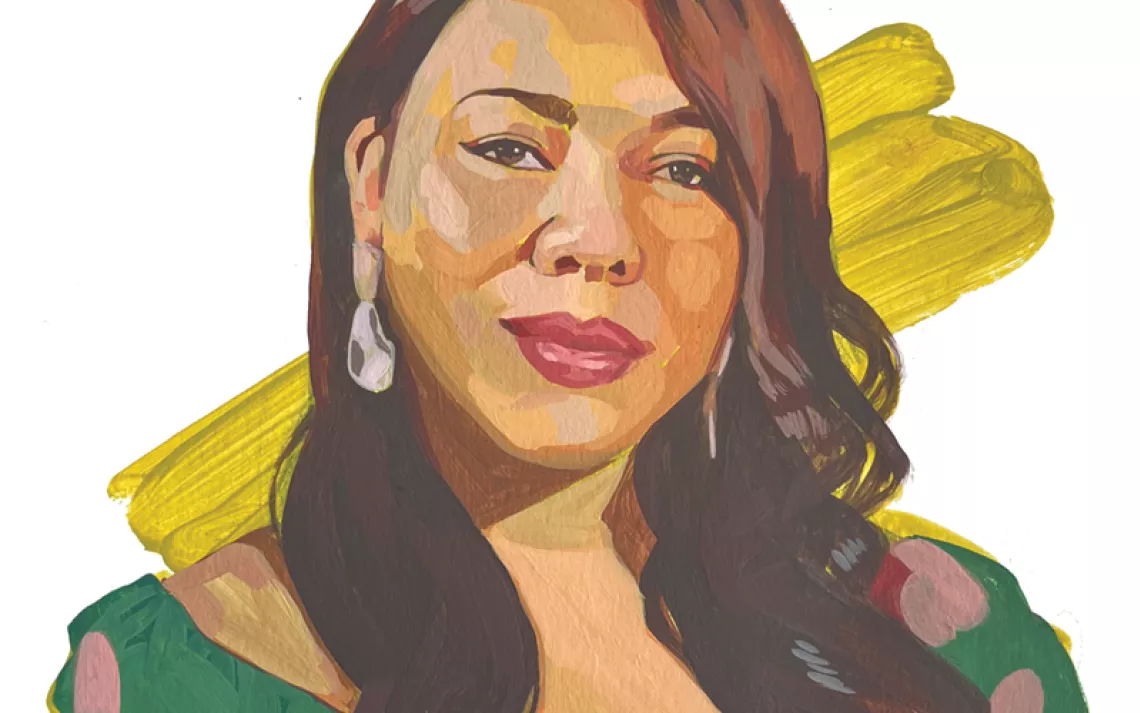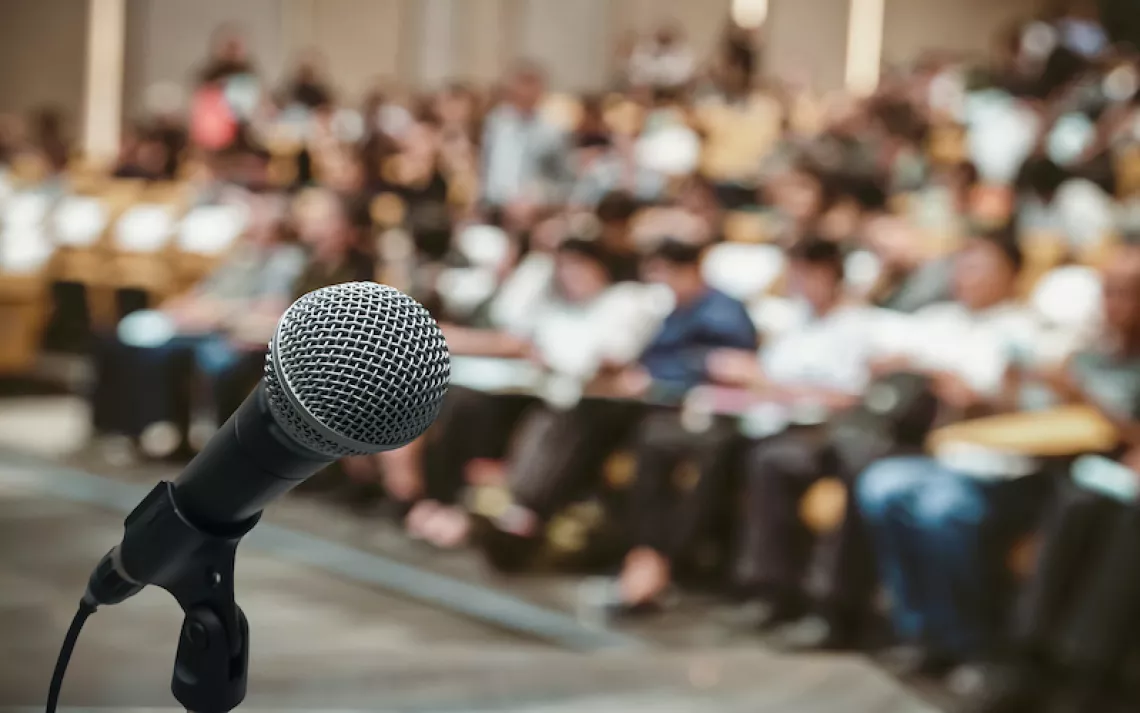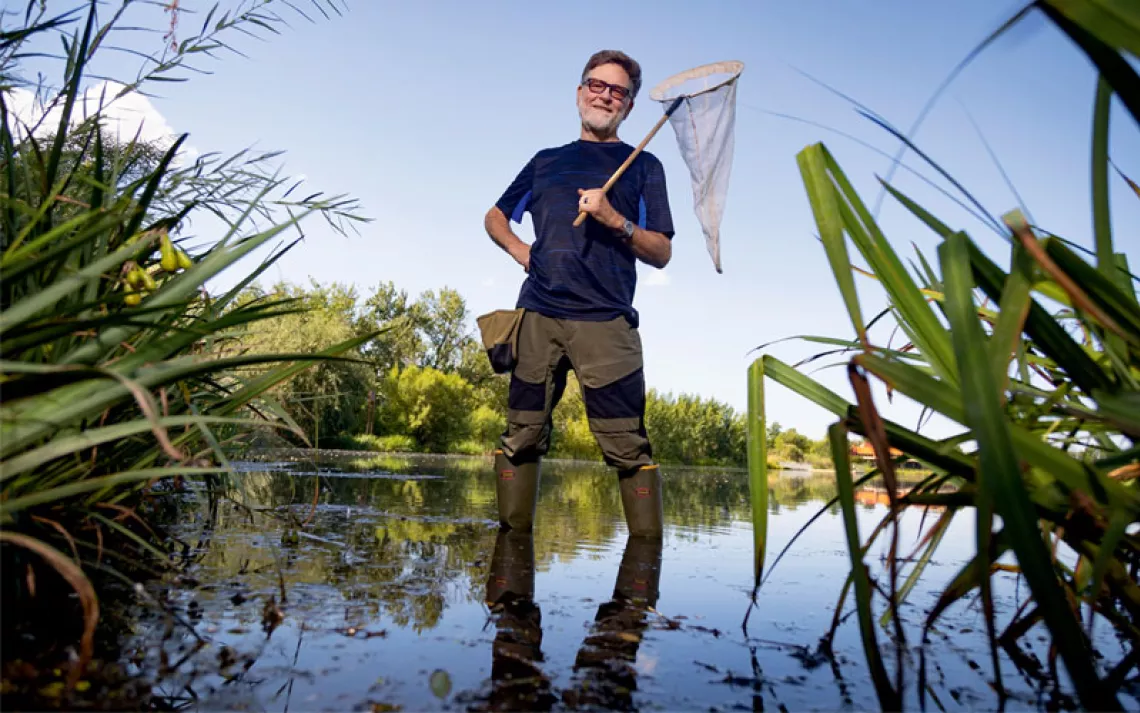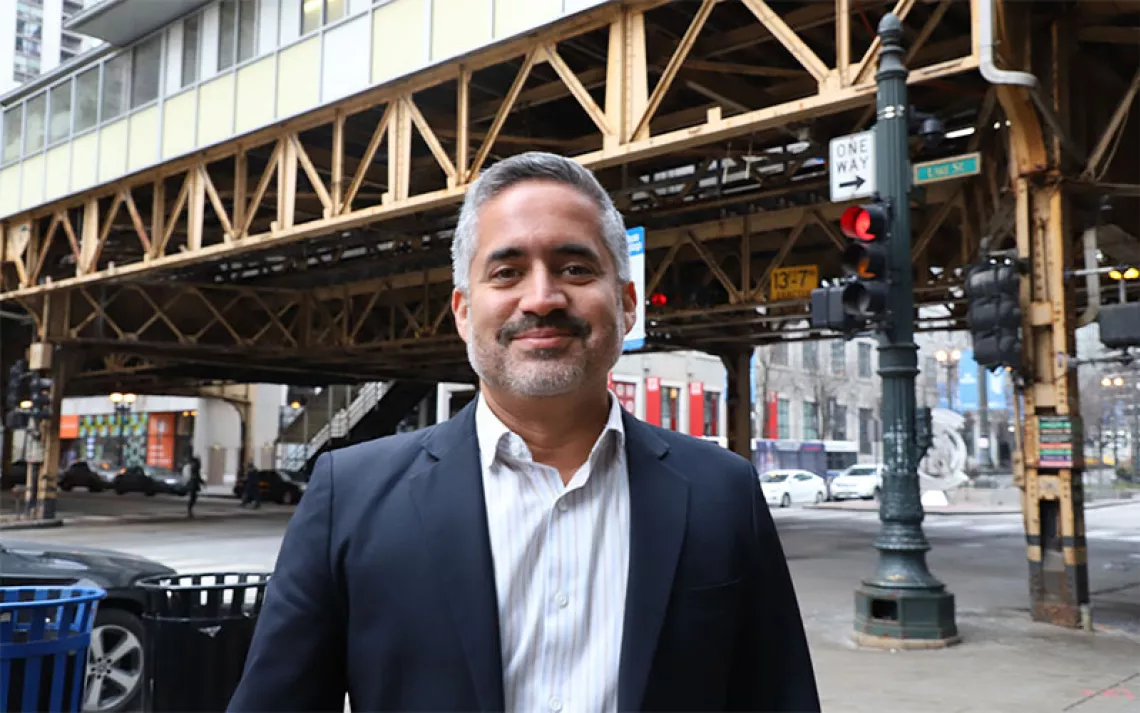What It's Like to Be an Environmental Defender in the Philippines
Indigenous people are murdered for trying to take back their ancestors’ land
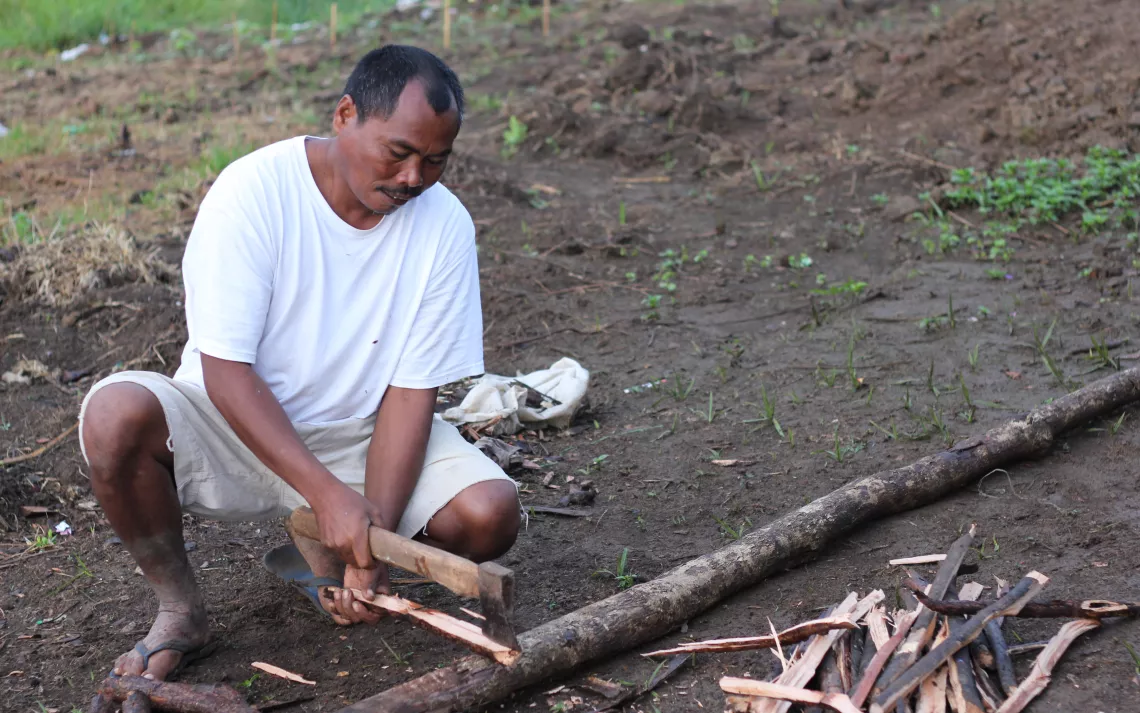
Renato Anglao splits firewood near his home in Quezon, Philippines, in 2014. | Photo by Loi Almeron
In April, the Philippines became the fourth foreign government to book rooms and event venues at the Trump International Hotel in Washington, D.C., for the country’s upcoming 120th Independence Day celebrations.
Filipino president Rodrigo Duterte will be staying at the hotel with the delegation as his government is trying to push for a free-trade deal with the United States. The decision to book the hotel is seen by critics as Duterte’s not-so-discreet way of getting in President Donald Trump’s good graces. Trump hasn’t exactly distanced himself from the Filipino leader, in spite of Duterte’s violent and bloody war against drug dealers and users; in May of last year, he called Duterte to congratulate him for “doing an amazing job.”
Over 2,000 people have died in extrajudicial killings in the wake of Duterte’s anti-drug campaign, but he’s not just killing dealers and their customers. For the third year in a row, Global Witness has named the Philippines the second-deadliest place in the world to be an environmentalist. According to the think tank, at least 41 environmental defenders have been killed in the Philippines in 2017, another 28 in 2016 and 33 in 2015, while local environmental groups like the Kalikasan People’s Network for the Environment, an organization that monitors attacks against environmentalists in the Philippines, say they counted more. “Under the Duterte administration, there have been at least 52 killings, 66 people illegally detained, 240 trumped-up charges,” said Kalikasan director Clemente Bautista.
Filipino indigenous activist Renato Anglao was one of them.
A year ago, Anglao was shot point blank in the head by three strangers. On February 3, 2017, the father of six was riding home on his motorbike with his wife sitting behind him and their five-year-old son wedged between them when three masked men with guns rode up on their own motorbike. They fired twice, hitting Anglao in the head and chest. The investigation is still pending, and no suspect has been arrested.
Before his death at 42, Anglao had been fighting for the legal title to his ancestors’ land in Quezon, a town in southern Philippines.
“[They shot him] most likely because of his fight against the ranch,” said his daughter Aidyl Anglao, who says her father was frustrated over the 12,000 hectares of land that belonged to their Manobo-Pulangihon tribal ancestors before the government began regulating land ownership and issuing official titles to people in the early 2000s.
Anglao was the secretary general of the Tribal Indigenous Oppressed Group Association, which represented his tribesmen in a long fight against agribusiness owners who wanted to plant pineapple on their ancestral land. The Manobo-Pulangihon tribe has been struggling to get its land back from Pablo Lorenzo, the vice mayor of the nearby town of Maramag. Lorenzo owns the ranch that has been sitting on tribal land for the past 30 years, raising cattle and growing pineapples and bananas for the international market.
Indigenous communities have suffered the most in the country’s environmental disputes; Anglao was one of at least 10 Lumad people killed over land disputes in 2017. There are over 15 million indigenous people in the Philippines. Anglao belongs to one of the largest non-Muslim indigenous tribes collectively called the Lumad, meaning “born of the earth” in Visayan. The Lumad accounts for nearly 20 percent of the country’s population and is constantly harassed by politicians, the military, and privately hired security forces for their land.
“We’ve always lived here since we were kids. At the riverbanks, the mountainsides, riversides. . . . We can’t live in the [open] areas because of the landlords,” Anglao said in an unaired interview with a Filipino religious youth group four years ago. By landlords, he means Lorenzo and the people on the Rancho Montalvan, who had leased the land from the government for 50 centavos per hectare (about $115 for the entire 12,000 hectares per year) until the lease expired in 2009.
In blogs run by Lumad activists, articles reported that Rancho Montalvan guards routinely shot at the Lumads living nearby, also setting fire to their huts and throwing explosives at them, trying to make them leave the area for good. “We just want it back because that’s where we are farming. . . . According to government regulations, the National Commission on Indigenous Peoples says that it’s possible to get our ancestral lands back,” Anglao said in the interview.
Knowing the lease was about to expire, Anglao and his people filed for official ownership of the land in 2008. While the case was pending, the group went to the ranch and approached the owners. They wanted to live nearby before the title was given to them, but the ranch’s guards shot them and tried to burn their homes down. They tried to return again in 2011. “We went again, but we were harassed, some people injured [that year]. We still haven’t left because we haven’t lost hope. We’re still here.”
The government finally awarded the land title to the tribe in 2014, but under the same title, the land has been divided into eight pieces among the families living there, and not all of them want to keep the land for themselves. Because money is hard to come by, some of the tribespeople want to keep renting the land to Rancho Montalvan.
“The most hurtful thing about the title is how the other leaders who want to rent the land out. Rent it again to Mr. Pablo Lorenzo,” Anglao said in the interview. Lorenzo is said to be closely connected to local authorities who have the final say over this land dispute: the mayor of Maramag, the chief of police. “Even the hall of justice.”
Life has been hard after Anglao’s death, said his wife, Aida, who now struggles to farm the plot of land her husband had managed in order to feed her children.
Anglao had called for people of all walks and cultural backgrounds to band together before his death. “Christians, Lumads, and [other groups] need to help each other so that they can fight for these cases [against powerful figures],” Anglao said in the interview, and Bautista echoed that hope.
“These are common people who are trying to defend their environment, conserve their natural resources and their rights over them,” said Bautista of the environmentalists whose campaigns she keeps track of. “We’re just professionals, indigenous people, farmers and fisherfolk whose rights, land, and communities are being destroyed and plundered by big corporations, but we must stand up to this tyranny.”
 The Magazine of The Sierra Club
The Magazine of The Sierra Club
